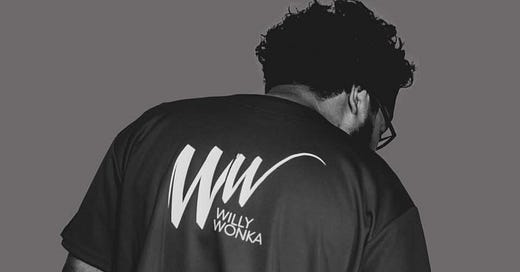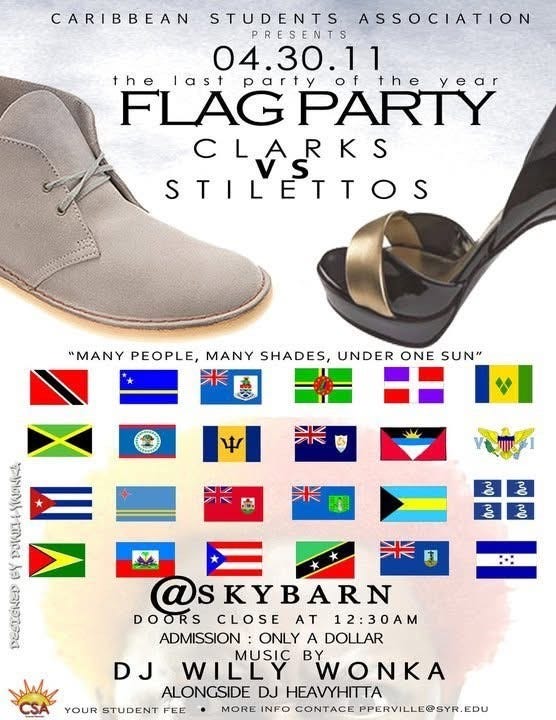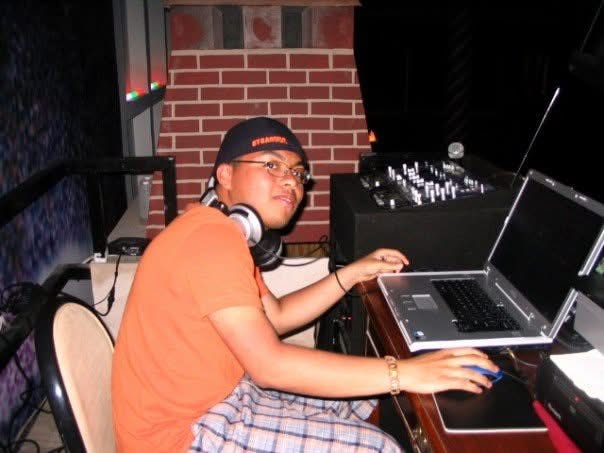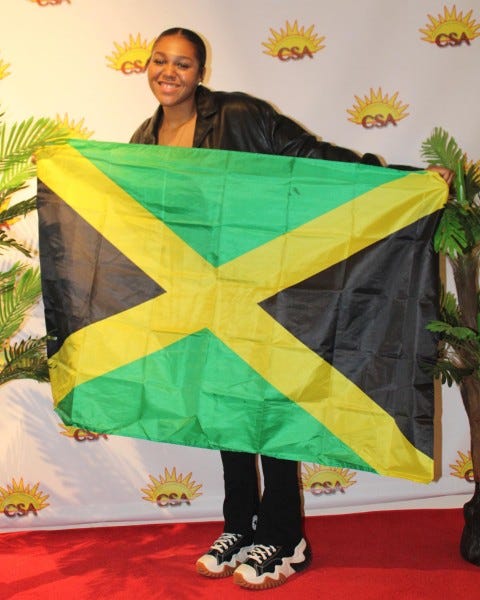From the Islands to the 315
Caribbean music, with its many genres, evokes a sense of community. Adolfo Quan, Aka DJ Willy Wonka, amplified the sounds of Caribbean music at Syracuse. By Hailey Roy, edited by Manaswini Pillai
Adolfo Quan, aka DJ Willy Wonka, remembers amplifying the sounds of Caribbean music throughout house parties on South Campus. His DJ sets later expanded into Sky Barn, Upstate New York Schools, and eventually within the Tri-state area.
Although he played at different schools, Sky Barn took the cake. The multipurpose space on South was filled with whining, sweating, and, of course, island flavor once a month during the Caribbean Student Associations’ [CSA] sold-out Sky Barn events.
“I felt like every time I played, I made an impact. People have fun. People are sweating. Everyone was dancing. No one was standing against the walls, watching each other,” Quan said. “People came there for the ultimate goal: to have fun. That's it. And that was my goal, to make people move.”
DJ Willy Wonka Flyer Event at the Sky Barn.
Today, Quan has opened for Caribbean artists like Machel Montano, Benjai, and I-Octane. But he found his first audience in Syracuse University students in 2006. The DJ and now SU alum began spinning Caribbean hits for CSA events while coordinating the organization’s shows and creating graphics.
Quan’s love for island rhythms goes beyond its sound. Caribbean music, with its many genres, evokes a sense of community. Even in chilly upstate New York, the music scene embedded with Caribbean flavor brings the heat to campus.
Thanks to SU’s students of color, the campus has maintained traditions that unleash the Caribbean sound. From parties thrown by multicultural Greek life to large-scale on-campus events such as Caribfest, the varied beats of Dancehall, Soca, and Reggae are here to stay and thrive.
Quan was born in Belize but grew up in the Bronx, so moving to Syracuse for university was a culture shock. It didn’t help that he wasn’t able to attend summer orientation, and was the only student of color on his floor during his first year.
“When I came to Syracuse, I saw a void that was missing here, that no one didn't see. But I saw it,” he said.
That void was a lack of Caribbean music and culture on campus, something deeply tied to Quan’s upbringing. Feeling that absence, he used music as a way to fill the gap, uplift himself, and express his creativity.
All he had was a bunch of saved music, a laptop, and a small controller to start his DJ career. CSA was where Quan first saw the power of Caribbean music bringing people together.
DJ Willy Wonka photographed djing in Belize Summer 2005.
Quan described CSA as a space that united students from diverse backgrounds, including Hispanics and Africans, fostering a sense of community. With organizations like the African Students Union (ASU) coming together, CSA events became cultural gatherings where different traditions blended. For many, these spaces offered a rare opportunity to reconnect with home, express themselves, and take a break from the pressures of college life, even if just for a few hours.
“It’s sort of a way to free yourself, and that’s so good. It’s an expression of freedom – you’re able just to let loose,” Quan said. “That’s what the music is about. Most Caribbean music, like Soca, Calypso, Dancehall, and Reggae, is all about expression.”
Beyond events and parties, CSA also brought Caribbean sounds to the airwaves. The organization hosted Real Vybz Radio on SU’s WERW Radio, airing on Sundays from 8-9 p.m. The show featured Latin-inspired music and reggaeton during Latin Heritage Month, Soca for Soca Junkies, and recaps of current events, ensuring that Caribbean music and culture had a steady presence on campus.
Caribbean music, from older reggae to contemporary dancehall, has been a key sound throughout Jada Knight’s life. Growing up, her parents would play older reggae artists such as Bob Marley and Beres Hammond, solidifying a special place in her heart for the Jamaican genre.
One of the things Knight admires most about Caribbean music is its collaborative nature. Unlike the U.S., where the industry often feels more individualistic, she sees the Caribbean as fostering a sense of unity among artists. She finds inspiration in producers creating a single rhythm, inviting multiple artists to record their own versions. Though each song sounds unique, the shared beat connects them all – something she considers a true artistic craft and a reflection of the culture’s communal spirit.
If you catch the SU senior around campus with headphones, she is most likely listening to Caribbean music. Some of her favorites include Popcaan, Jada Kingdom, and Skeng. For Knight, music is more than just entertainment – it is a source of connection. While it doesn’t always feel like home, certain reggae songs from artists like Bob Marley, instantly remind her of her mother, her family, or Jamaica itself. That feeling of familiarity and joy keeps her plugged in at all times. “I never leave my room without my headphones,” she said.
During her first couple of weeks on campus, Knight researched CSA and became a member of their street team – a group that falls under the executive board – for three years. Now, she is a member of the executive team.
Throughout her time at SU, CSA and its music have been a defining part of Knight’s experience. Some of her most memorable moments are tied to CaribFest, the organization’s annual celebration of Caribbean culture. During her first year, Kranium performed, and by her sophomore year, Gyptian took the stage. Seeing well-known Caribbean artists on campus made her even more invested in CSA.
Jada Knight photographed with Jamaican flag at a Caribbean Student Association event at Syracuse University.
“I wasn’t expecting to see something like that coming to ‘Cuse, so it just showed me that the Caribbean culture is alive here. We’re up, and we’re here at Cuse.”
The influence of Caribbean music at SU goes beyond just the beats and rhythms – it is about representation, connection, and keeping traditions alive. For those like Quan and Knight, music is a way to build community and bring a piece of home to campus. But Quan believes there’s still room for growth, and maintaining and expanding Caribbean culture at SU requires active participation.
DJ Willy Wonka photographed.
“We need to create more things that bring the culture into the school – things we know and have learned from home. From Carnival to the food, keep bringing that onto campus because it makes an impact,” Quan said. “Many people still don’t know about the Caribbean, so bring the culture in. Share whatever part of your culture you have. And the music – keep pushing the music.”







